I’ve worked with preschoolers for years, and so I can speak from experience that it is important to provide young children the opportunity to participate in physical activities that support their gross motor development.
When parents and educators encourage preschoolers to engage in such activities that test their balance, coordination, strength, and endurance on a regular basis, the kids develop the physical foundation they need to flourish health-wise, socially, emotionally, academically, and generally.
That’s why I’m excited to share with you 20 time-tested, practical, and fun gross motor activity ideas that you can easily incorporate into your preschooler’s routine.
Not only that, but I’ll also give you tips for making a safe and stimulating environment for your preschooler to play in.
By the end of this article, you’ll have all the tools you need to promote your preschooler’s gross motor development in a fun and safe way.
Let’s get right in and find out what gross motor skills are all about and why they are so important for our young children.
What Is Gross Motor Skills?
Gross motor skills refer to the ability to control large muscles in the body (such as the legs, arms and hips among others) to perform activities that are essential for physical development and daily functioning, from walking, jumping, throwing, and running to playing sports and climbing stairs.
For preschoolers, these activities are not only fun but also crucial for their growth and overall well-being.
Why Gross Motor Activities for Preschoolers are Important
Here are some of the reasons why gross motor activities for preschoolers are important and beneficial.
Physical Development
Gross motor activities are essential to help kids grow strong and healthy.
When kids do these activities, like running, jumping, and throwing, they use large muscles in their bodies.
This helps them get better at balancing, moving around, and getting stronger.
Plus, when kids do these activities often, it can help them keep a healthy weight and avoid health problems. How cool is that?
Social Development
Many gross motor activities for preschoolers are group-oriented, providing opportunities for kids to interact with their peers.
This undoubtedly is a great way for children to make new friends and develop their social skills.
By playing with other kids, they learn how to take turns, share equipment, and communicate effectively.
Plus, it’s a lot of fun to play with friends and build strong relationships!
Cognitive Development
Gross motor activities can help kids improve their thinking skills. As they participate in these activities, children learn to solve problems and think creatively.
Additionally, gross motor activities promote brain development.
Studies have shown that children who engage in regular physical activity often have better memory, attention, and problem-solving skills.
Emotional Development
Gross motor activities for preschoolers are also great for helping kids develop their emotional skills.
They can express themselves through physical movements and learn to manage their emotions through exercise.
It’s a fun way for kids to release pent-up energy and improve their mood, while also learning how to handle their emotions in a healthy way.
Coordination
Gross motor activities help children develop hand-eye coordination and body awareness, which are crucial for everyday tasks like dressing themselves, using utensils, and playing sports.
Overall Health
Regular gross motor activity can also help preschoolers maintain a healthy weight, reduce their risk of chronic diseases, and improve their overall health and well-being.
Now that we understand the importance of gross motor activities, let’s dive into some fun and engaging activities to try with your preschoolers.
Bringing Gross Motor Activities into Your Preschooler’s Routine
Now, let’s talk about how to bring some fun gross motor activities into your preschooler’s daily routine!
We’ll cover both indoor gross motor activities and outdoor ones, so you have plenty of options no matter the weather.
Indoor activities are great for those rainy days or when it’s just too hot to play outside.
Outdoor activities are perfect for when the weather is nice and your little one needs to burn off some energy.
So let’s get started and make sure your child is getting the right activities they need for their development!
Ideas For Indoor Preschoolers Gross Motor Activities
Simon Says
Play Simon Says with actions that involve large gross motor movements like hopping, skipping, and jumping. For example, “Simon says jump five times” or “Simon says hop around in a circle.”
This activity can also help to develop listening skills and following instructions.
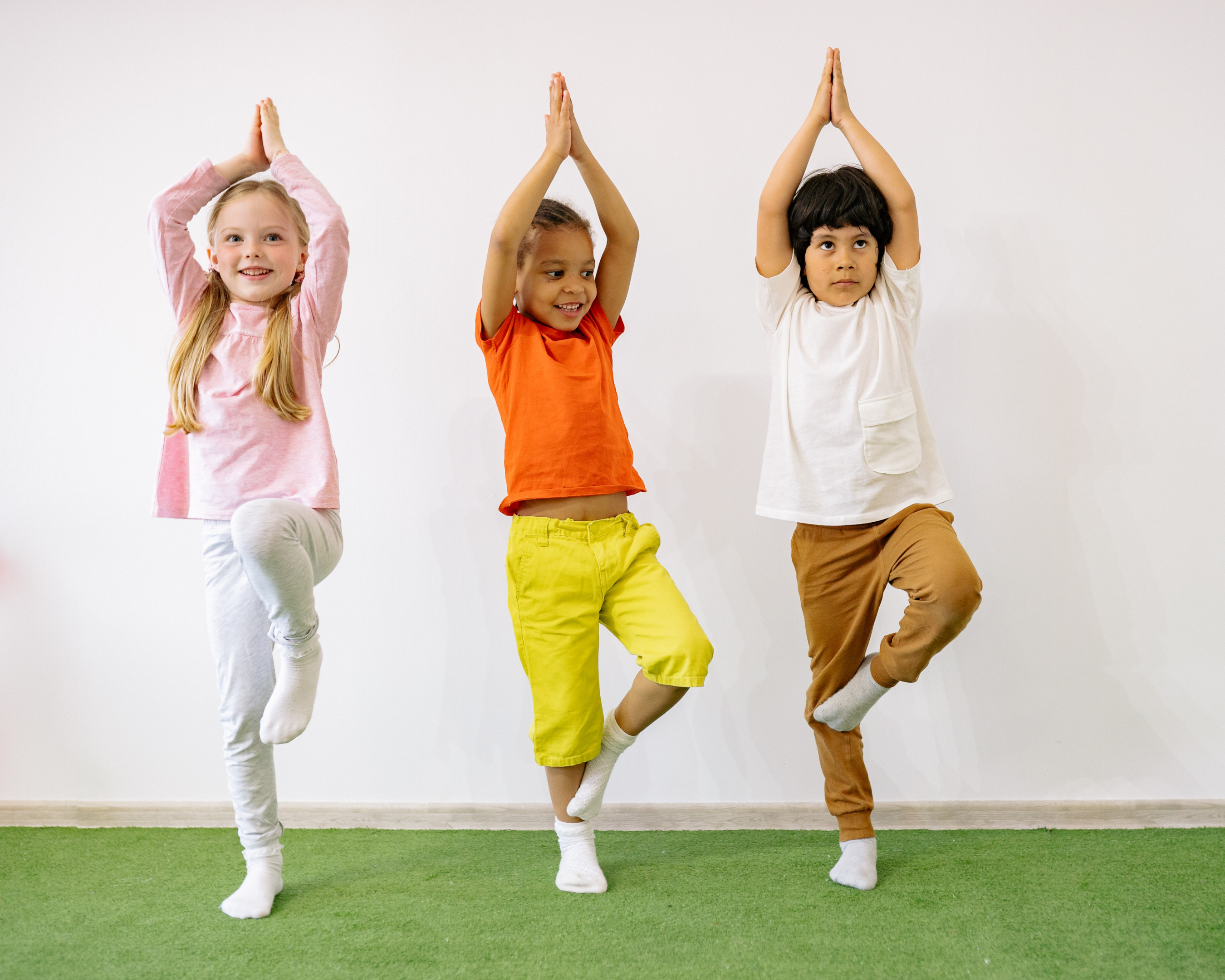
Indoor Hopscotch
Use painter’s tape to create a hopscotch grid on the floor. Preschoolers can jump from square to square and practice their counting.
Animal Walks
Encourage your preschoolers to crawl like a bear, waddle like a penguin, hop like a kangaroo, and slither like a snake.
Not only will they have a blast imitating different animals, but they’ll also develop gross motor movement in the process.
Yoga
Try some simple yoga poses with your preschoolers like downward dog, tree pose, or cat/cow. Yoga is a great way to develop a child’s gross motor skills, flexibility, and balance while also providing a calming and relaxing experience.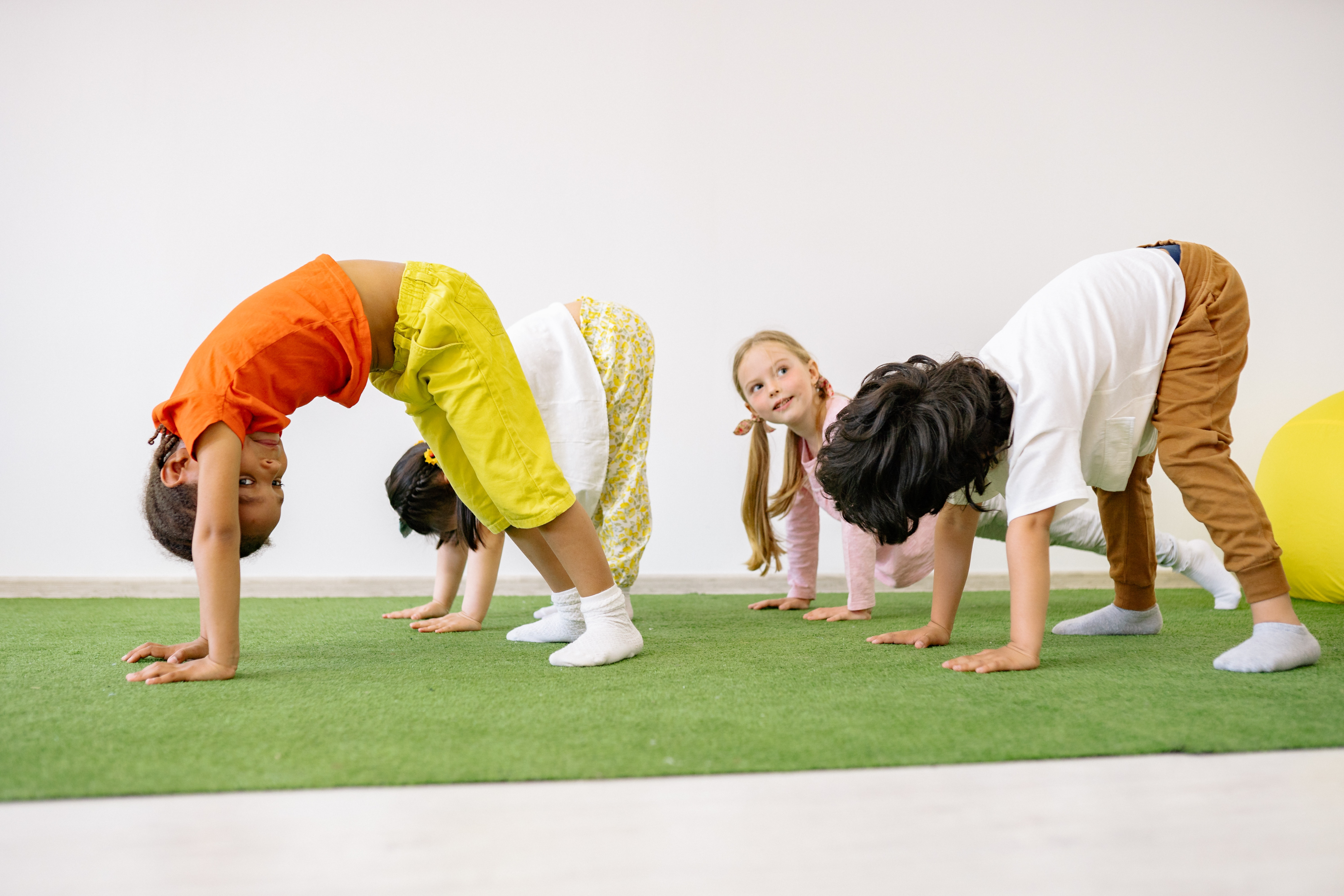
Ball Games
Play simple ball games like catching or rolling the ball back and forth. This activity helps develop hand-eye coordination and social skills like taking turns.
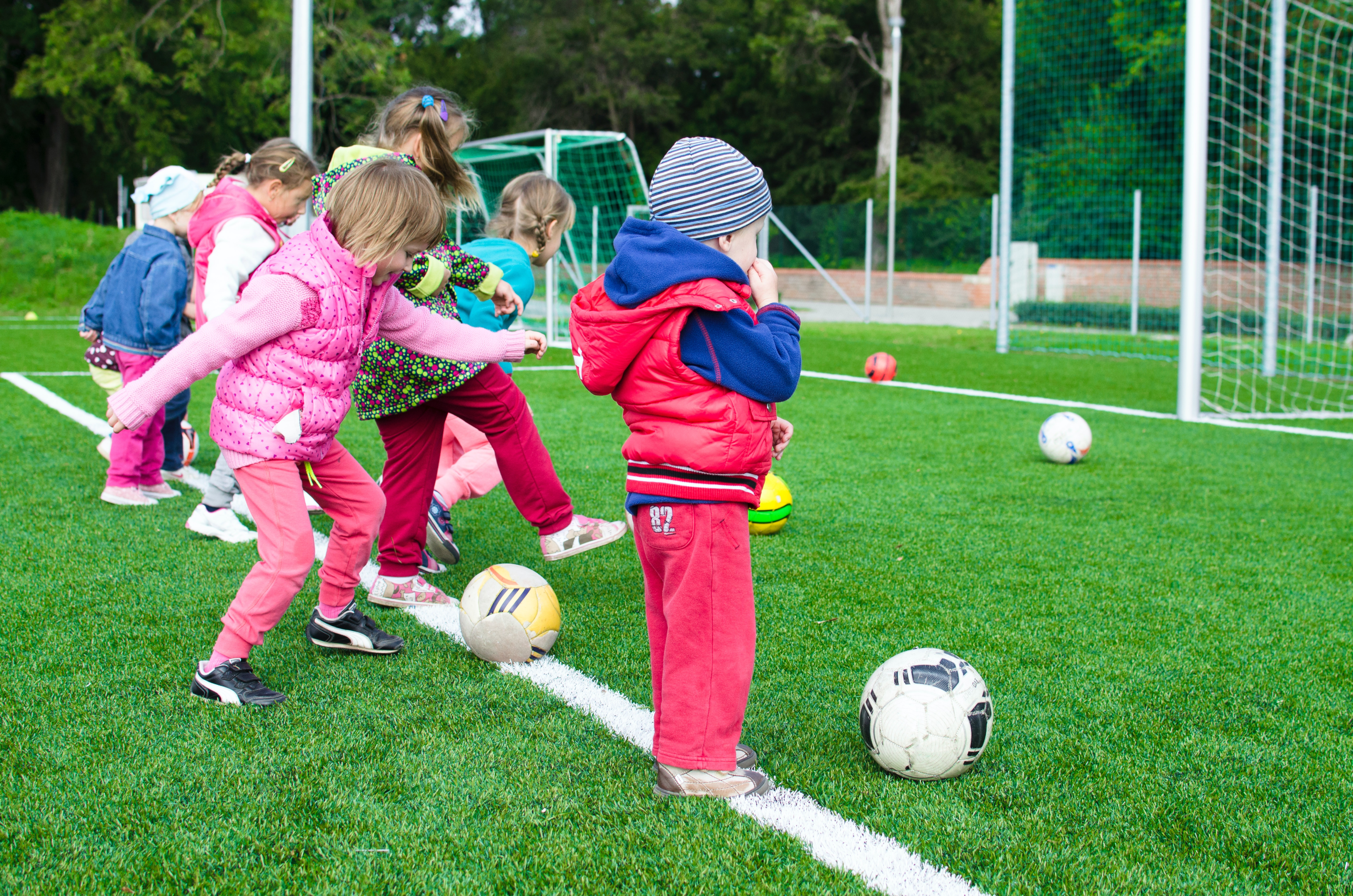
Dance Party
Put on some music and have a dance party! Dancing is an excellent way for children to develop their gross motor skills while having fun.
Encourage children to move their bodies in different ways like jumping, twirling, shaking, and trying different dance styles.
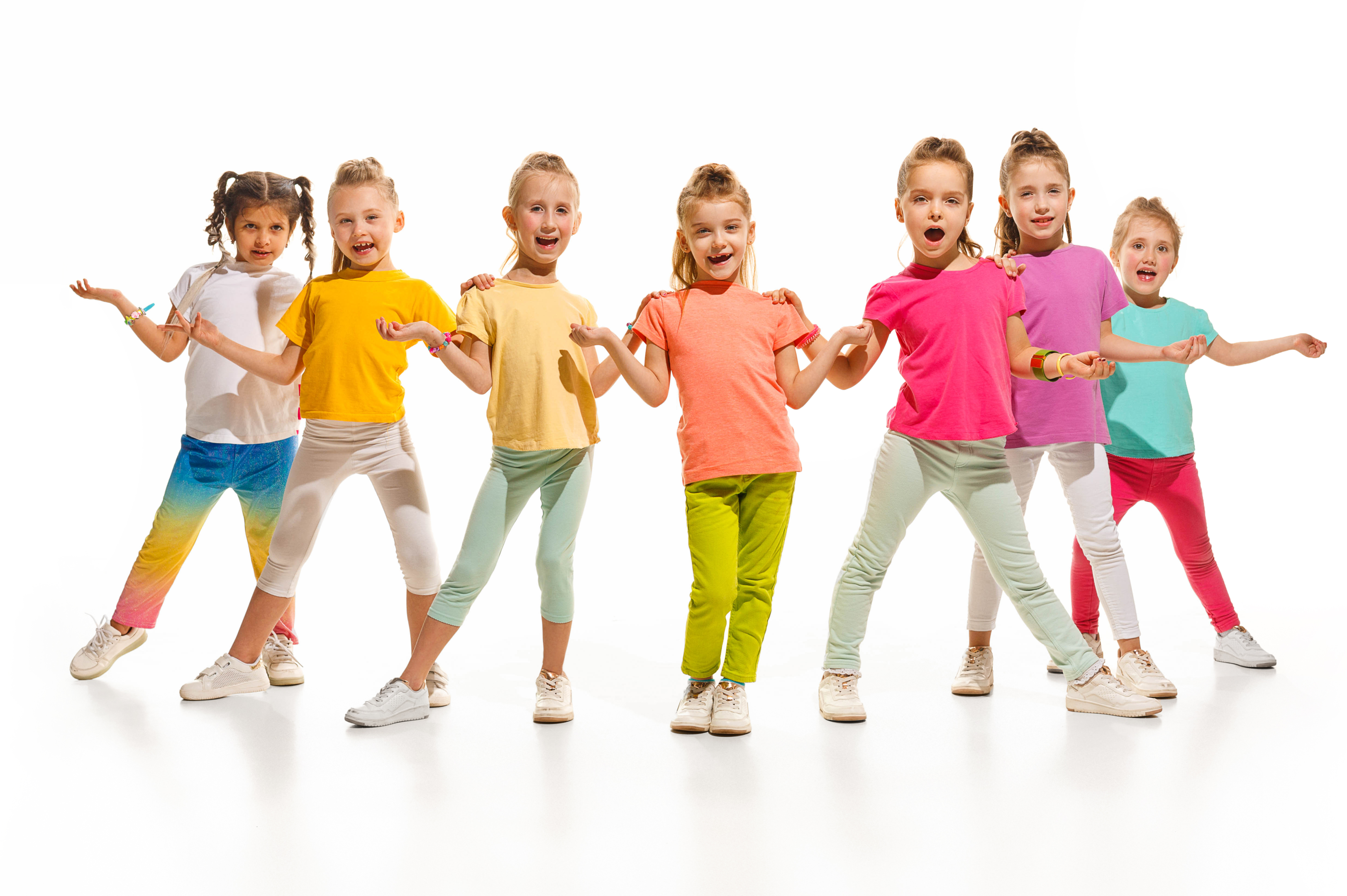
Balloon Volleyball
Blow up a balloon and play volleyball using a makeshift net made of a rope or string. This is a great way to improve hand-eye coordination.
Sensory Play
Encourage children to engage in sensory play with items like play dough, sand, or water. Sensory play helps develop fine motor skills and hand-eye coordination, which are essential for development.
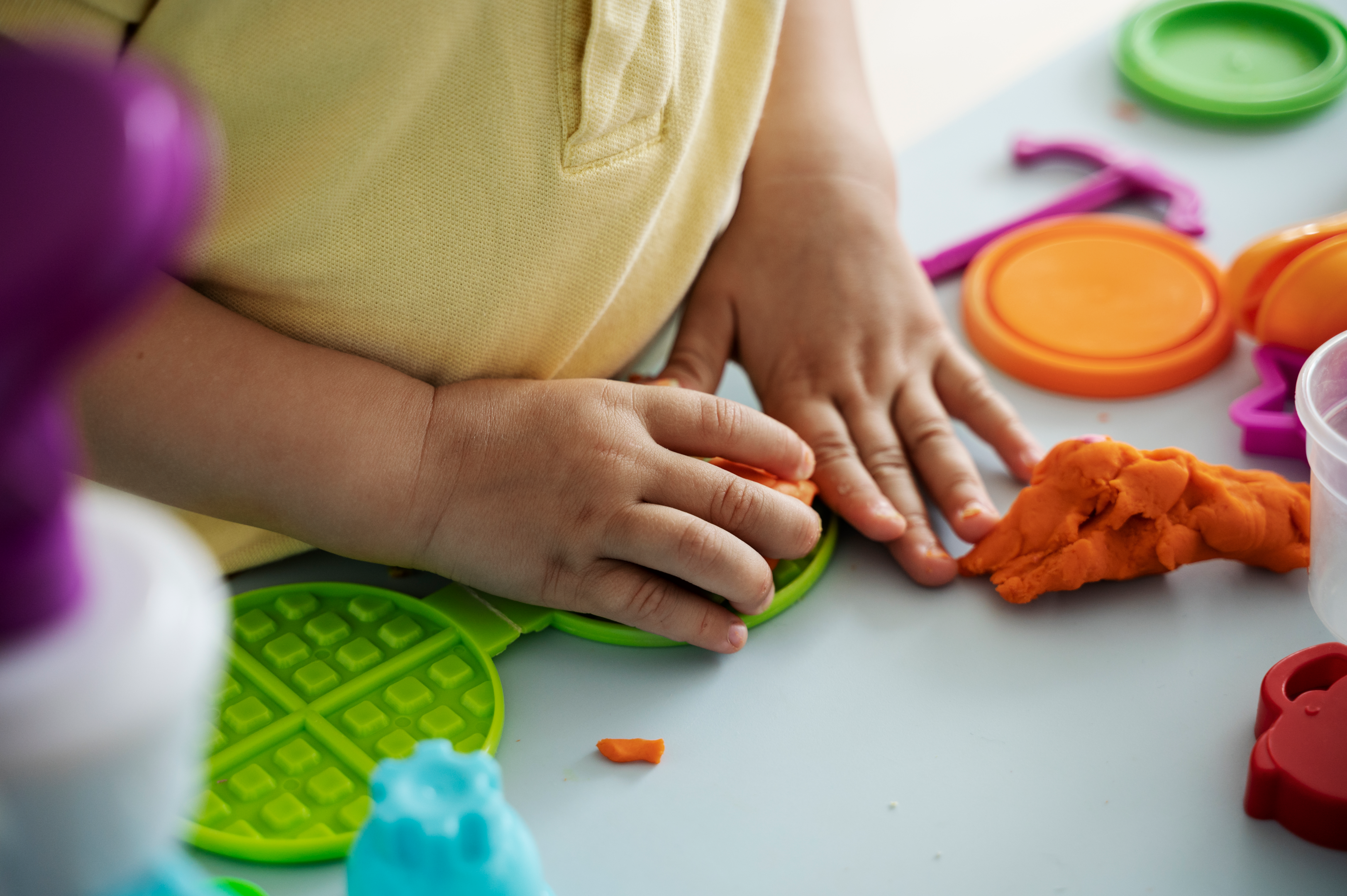
Follow the Leader
Let the children take turns being the leader and encourage other children to follow along with gross motor actions like jumping, hopping, and skipping. This activity also helps develop listening skills.
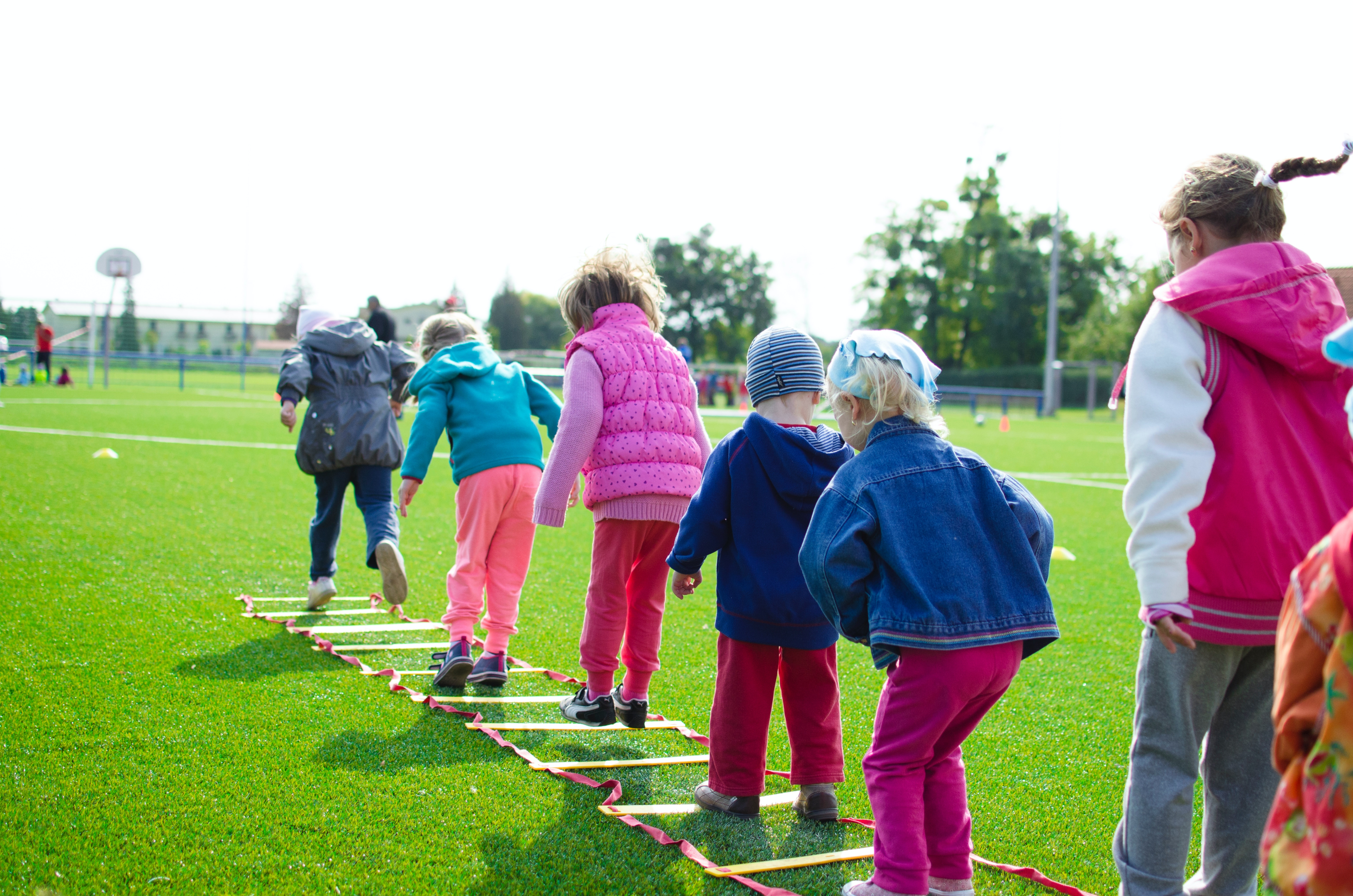
Freeze Dance
Play music and have preschoolers dance. When the music stops, they must freeze in their current position until the music starts again.
These indoor gross motor activities are sure to keep your preschoolers active, engaged, and having fun!
Ideas For Outdoor Gross Motor Activities
Here are some exciting but easy gross motor activities that your preschoolers can do outdoors:
Obstacle Course
Create an obstacle course with items like cones, hula hoops, pool noodles, and balance beams. Encourage children to crawl, jump, and balance their way through the course.
This activity also helps to develop coordination and balance.
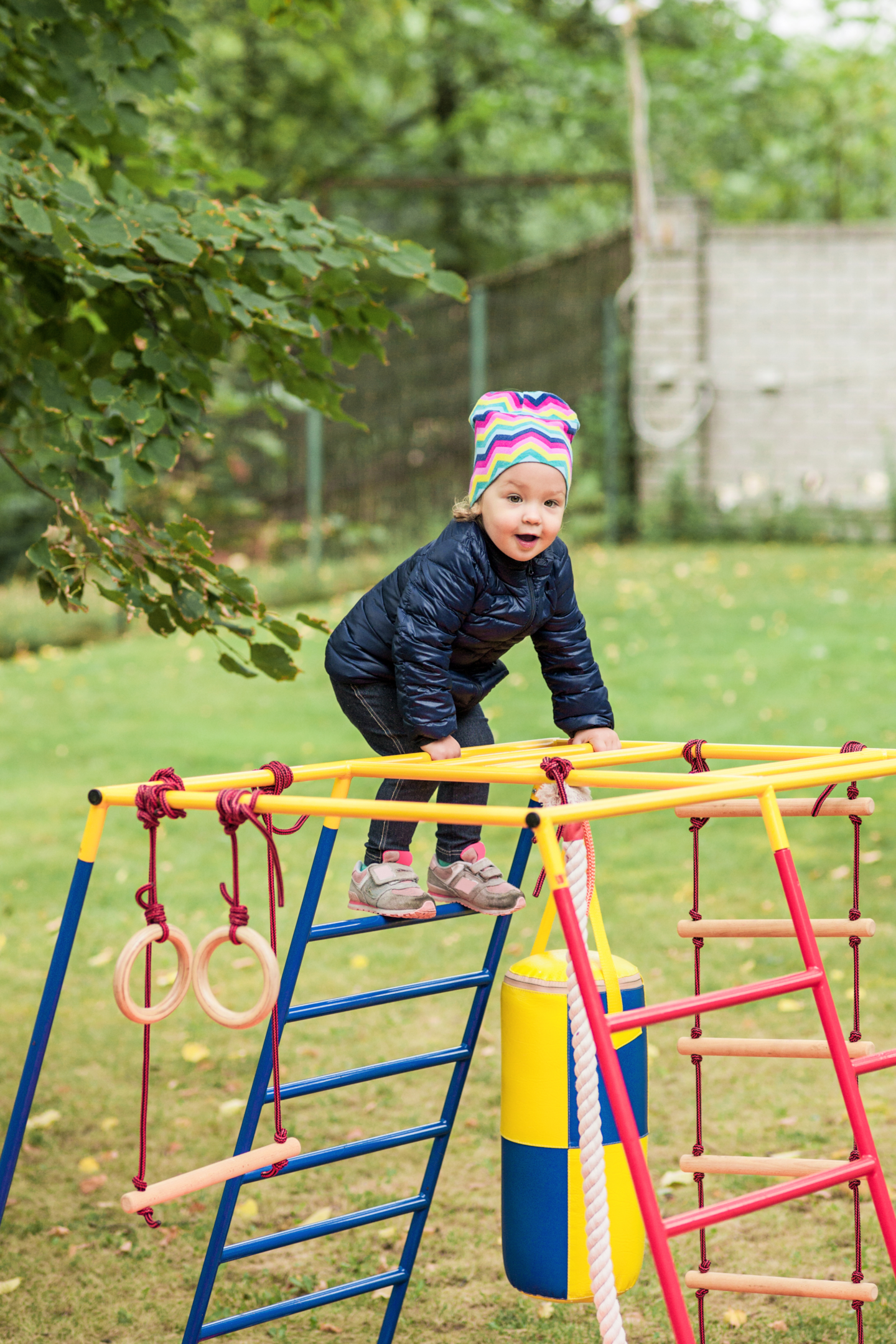
Nature Scavenger Hunt
Take the preschoolers for a walk in nature and create a scavenger hunt list. List items such as rocks, flowers, sticks, and leaves, and have the children find them.
This activity promotes gross motor skills as the children walk and run around outside.
Parachute Play
With just a big colorful parachute and a group of enthusiastic children, you can create endless games that challenge their balance, coordination, and teamwork skills.
From playing popcorn to mushroom, and even creating a wave, the possibilities are endless!
It’s a super fun and exciting way for kids to develop their gross motor movement outdoors!
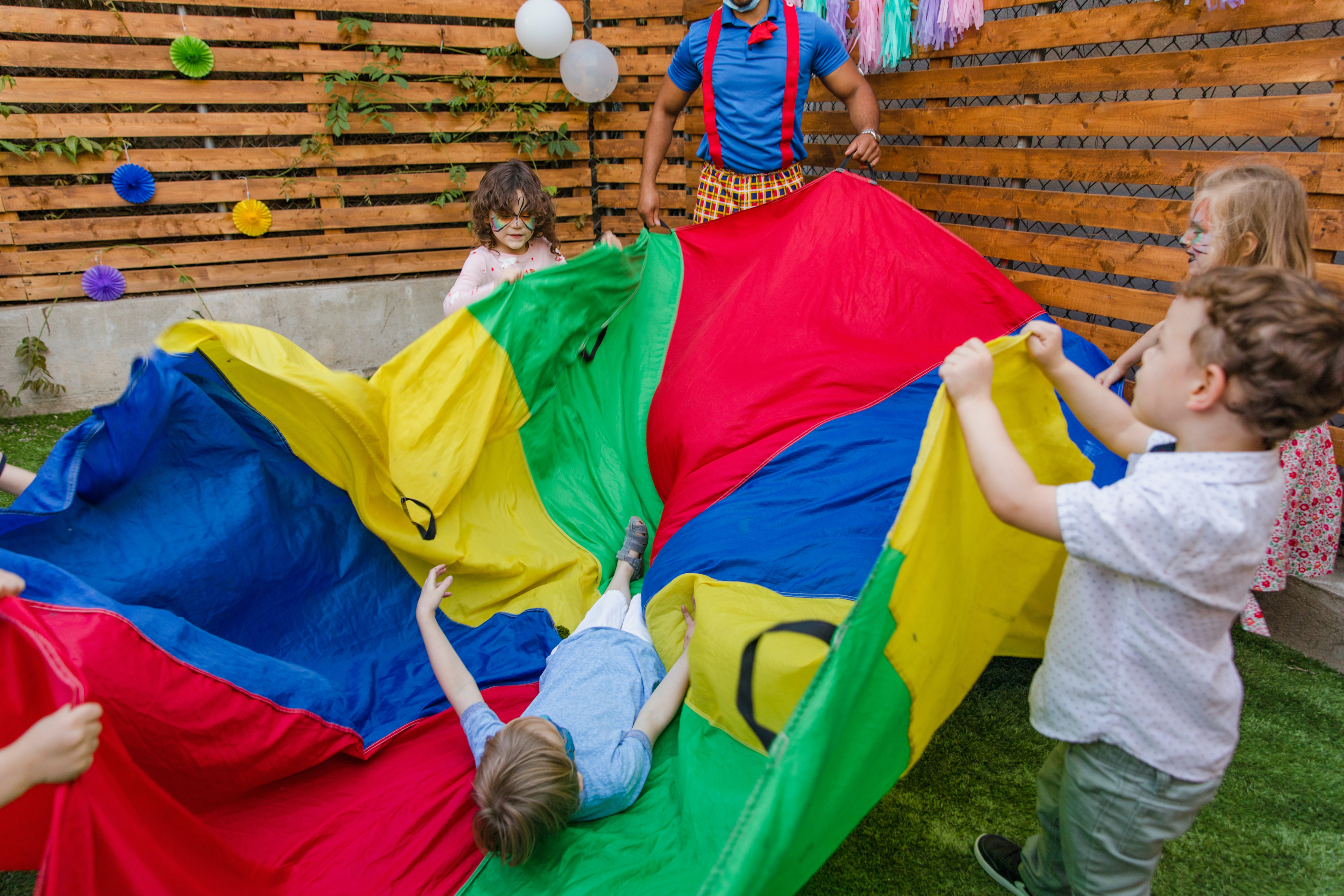
Water Play
Set up a kiddie pool, water table, or sprinkler, and let the preschoolers splash around. This activity promotes sensory development.
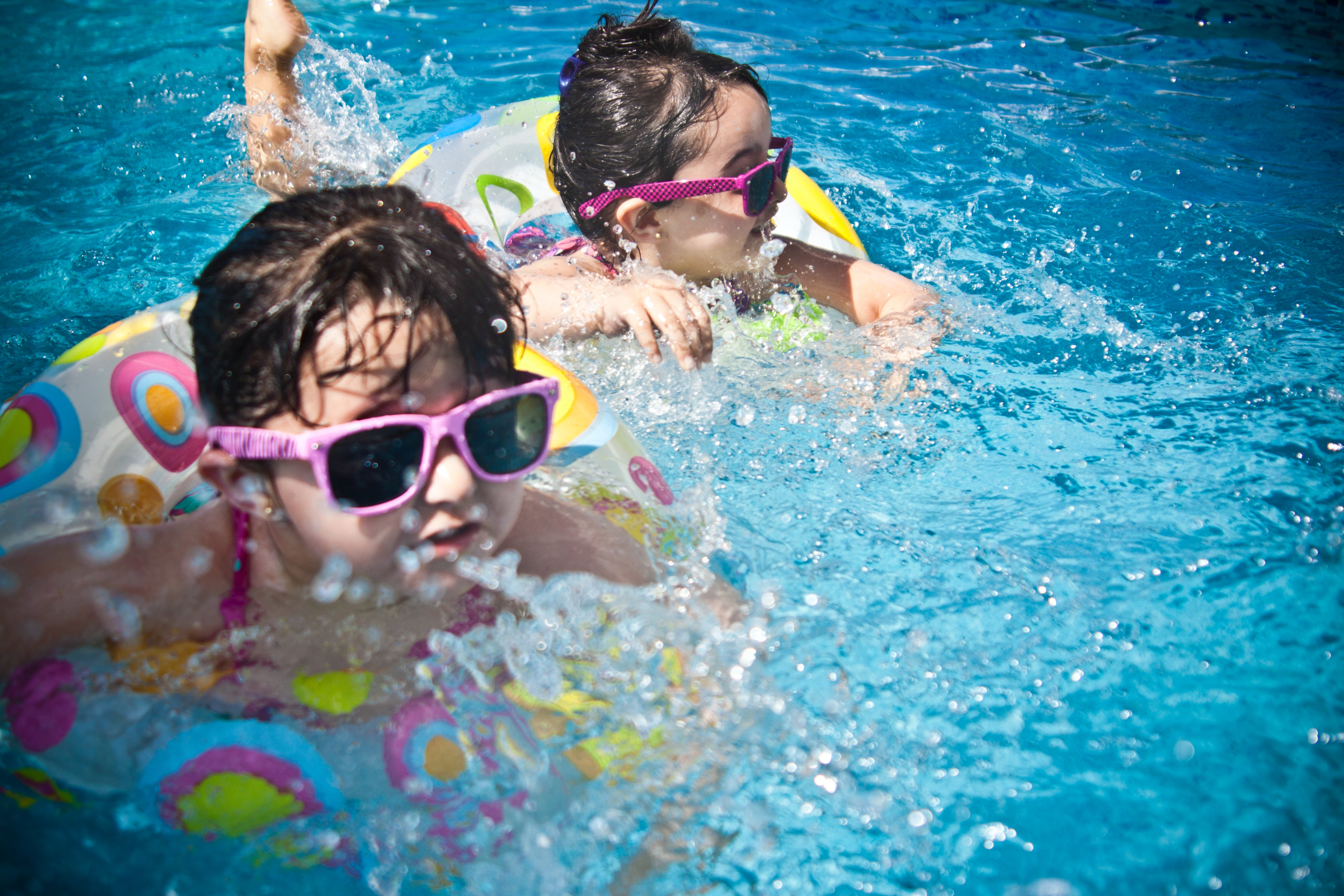
Bike Riding
Take your preschooler for a bike ride to develop their skills, coordination, and balance. Remember to always wear a helmet and practice bike safety.
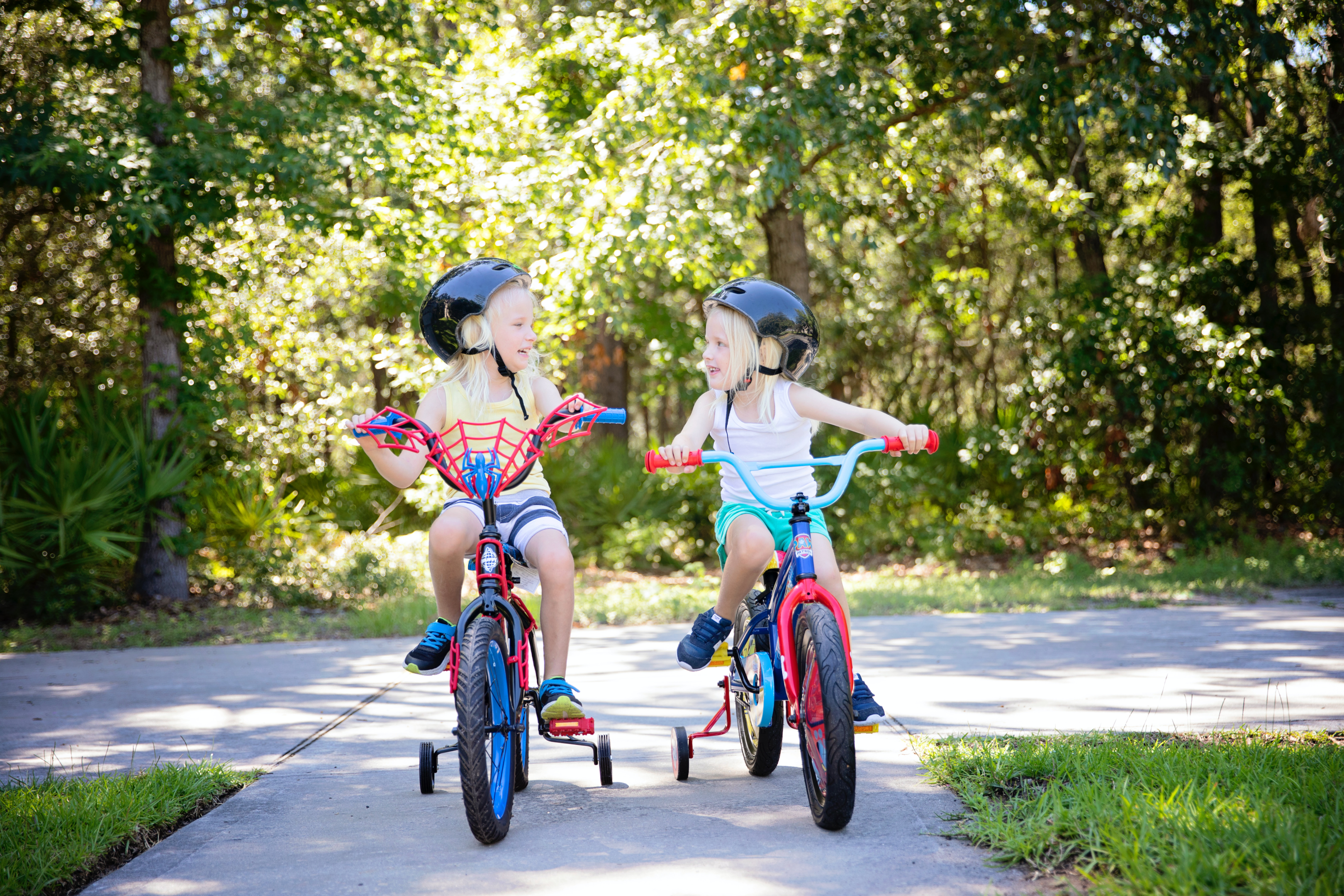
Bubble Pop
Blow bubbles and have the preschoolers pop them by jumping, clapping, or using a fly swatter. This activity is not only fun but also promotes hand-eye coordination.
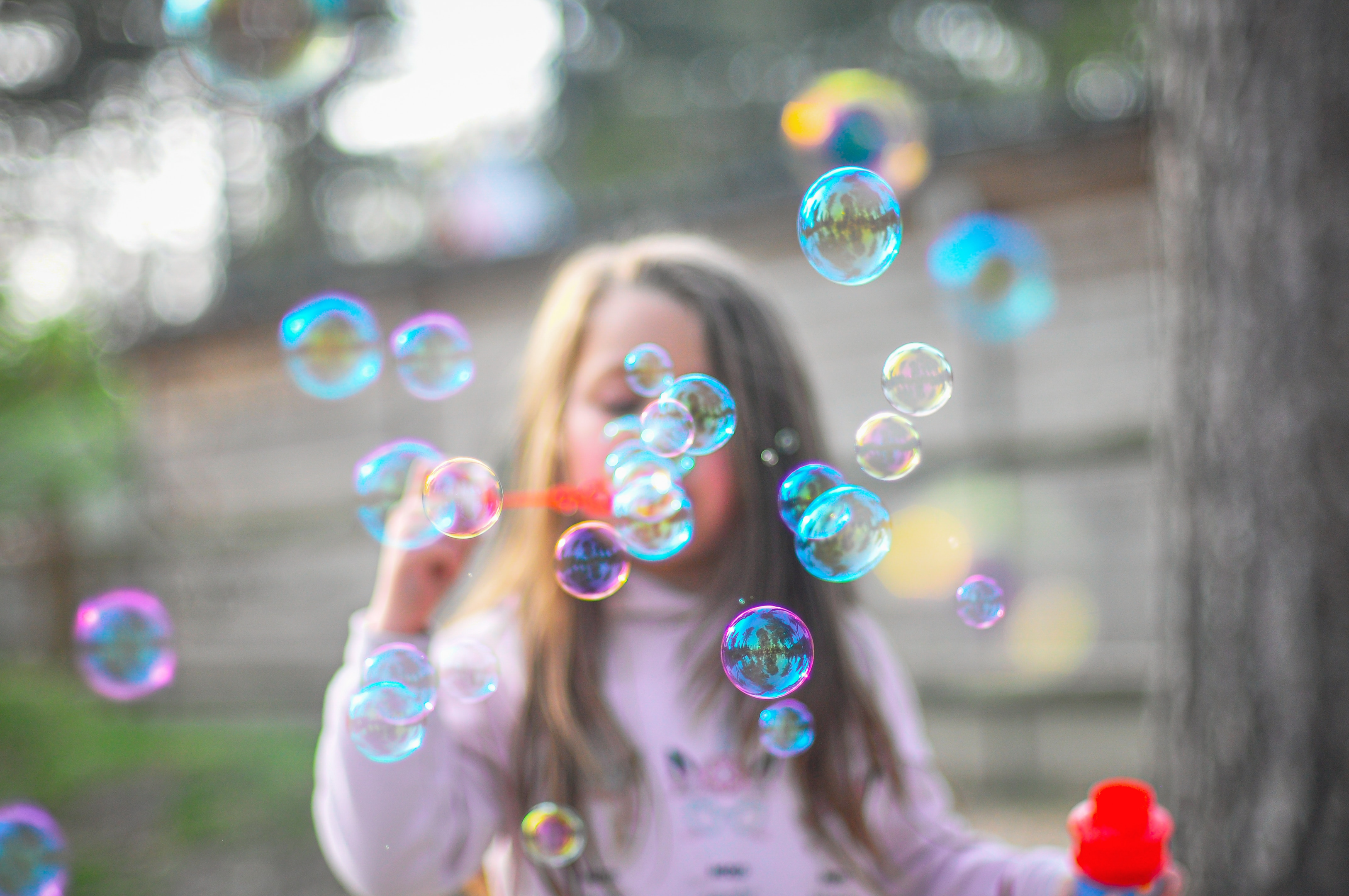
Sidewalk Chalk Obstacle Course
Draw an obstacle course on the sidewalk with chalk. Include simple gross motor activities such as jumping jacks, hopscotch, and crawling. This activity also promotes creativity.
Red Light, Green Light
One child acts as the “traffic light” while the others line up behind them. When the traffic light says “green light,” the other children run towards them, but they must stop when the traffic light says “red light.
Tag Games
One child acts as “it” and chases after the other children, trying to tag them. If “it” successfully tags another child, that child becomes “it” and must begin chasing the other children too, who try to avoid being touched.
The game can be played with any number of players and in any open space. The game continues until everyone has had a turn or the players decide to end the game.
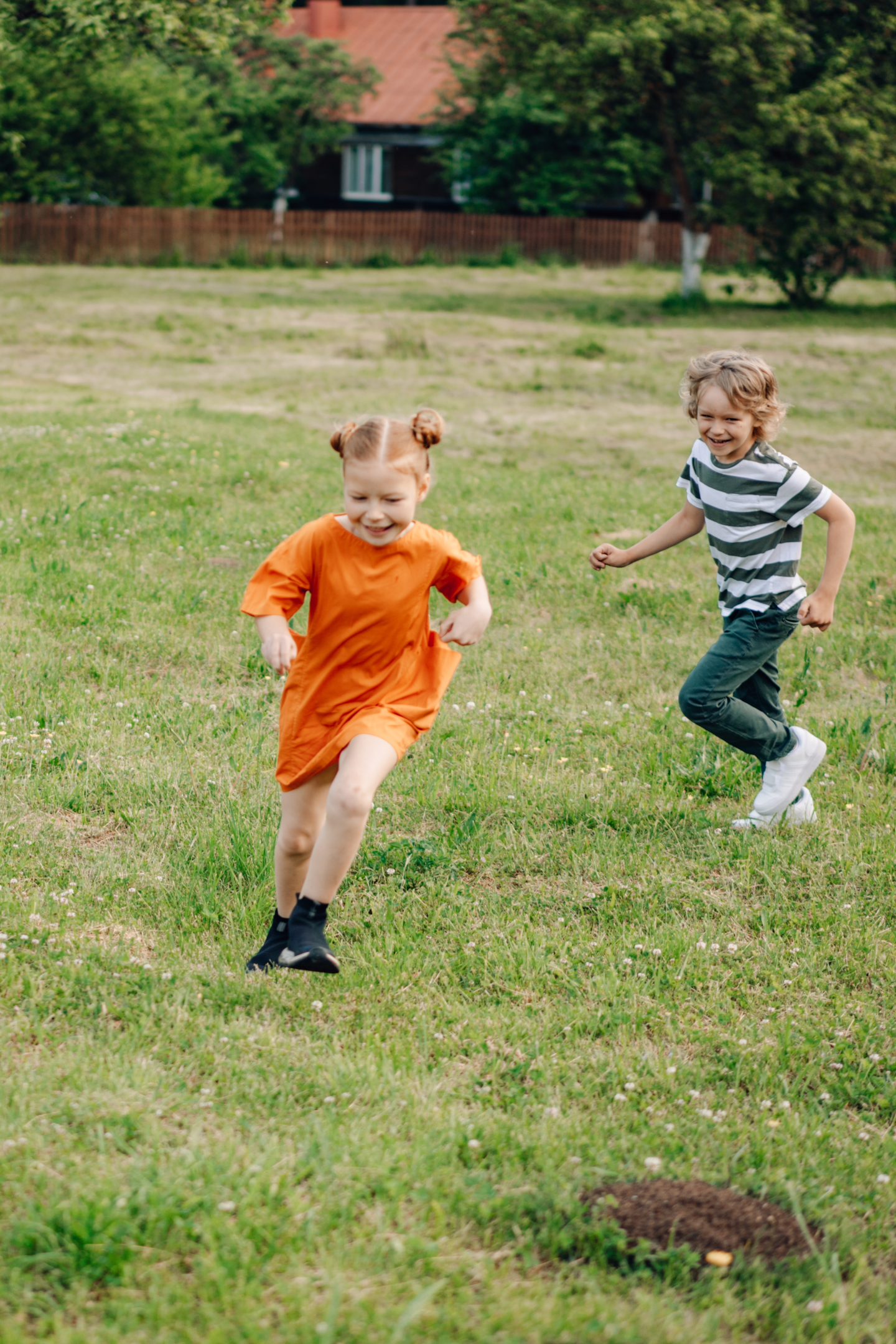
Water Balloon Toss
Fill up a bunch of water balloons and have children toss them back and forth to each other, gradually moving further apart to increase the challenge.
Remember, outdoor gross motor activities provide opportunities for preschoolers to develop their coordination, balance, and strength while also enjoying the benefits of being outside in the fresh air and sunshine.
How To Incorporate Gross Motor Activities Into A Preschooler’s Routine
Check out these ideas for incorporating gross motor skills activities into your preschooler’s routine:
Schedule outdoor playtime
Make sure your preschooler gets ample time to play outside in a safe and secure area.
Encourage running, jumping, skipping, and other activities that engage gross motor skills.
Consider taking your child to a park or playground where they can run around, climb, and swing.
Encourage active play indoors
You can create an indoor play area where your preschooler can engage in gross motor activities even on days when they can’t go outside.
This could include a mini trampoline, balance beam, or soft foam blocks to climb on.
You can also play music and encourage your child to dance or jump around.
Incorporate gross motor skills into daily tasks
You can encourage your preschooler to engage in gross motor skills by incorporating them into daily tasks such as helping to carry groceries or jumping while waiting for the bus.
For example, you can challenge your child to see how many hops or jumps they can do while waiting for the bus to arrive.
Plan structured activities
Plan structured activities such as dancing, yoga, or obstacle courses to help your preschooler develop their gross motor skills.
Play games that require movement
Games such as Simon Says, Red Light, Green Light, and Follow the Leader can be a fun way to get your preschooler to move and develop gross motor skills.
You can also create your own games that involve jumping, hopping, or balancing.
By incorporating these ideas into your preschooler’s routine, you can help them develop strong gross motor skills while having fun and staying active.
Tips For Creating A Safe And Engaging Environment
Whenever you plan to have some fun gross motor activities with your preschoolers, here are some tips to keep in mind to make sure it’s safe and exciting for everyone involved.
Have a responsible adult supervise the activities at all times, especially when using equipment like trampolines, climbing structures, or swings.
Use safety equipment like helmets, knee pads, and wrist guards when appropriate, especially for activities like biking.
Ensure there is enough space to perform the activities without bumping into other objects or people. Clear away any potential hazards like furniture, cords, or sharp objects.
Encourage children to wear shoes with good traction and support for outdoor activities, and provide socks or slippers with good grip for indoor activities.
Choose activities that are appropriate for the children’s ages and abilities. Don’t expect young children to perform activities that are beyond their physical capabilities.
Offer a variety of activities that challenge different gross motor skills like balance, coordination, and strength. This can keep the children engaged and interested.
Provide positive reinforcement and encouragement to children during the activities. This can help build their self-confidence and motivate them to keep trying new things.
Always prioritize safety first and create an environment that is both enjoyable and engaging for preschoolers.
Suggestions For Varying The Activities To Keep Kids Interested
To keep children interested in gross motor activities, it is important to vary the activities regularly. Here are some suggestions for varying the activities:
Change the location
Move from an indoor space to an outdoor one or change the room where the activity takes place.
Use different materials
For example, use balls of different sizes, textures, and colors.
Change the rules
Adjust the rules of the game or activity to make it more challenging or exciting.
Introduce new equipment
For example, introduce balance beams, hula hoops, jump ropes, bean bags, or cones to create new activities.
Encourage creativity
Let children use their imagination to create games and activities using the available equipment.
Incorporate music
Play music while doing the activity, or use music to set the pace and rhythm of the activity.
Remember, the key to keeping children engaged is to ensure the activities are fun and interesting.
Conclusion
We’ve covered it all. From incorporating gross motor activities into their daily routine, to providing a safe and engaging environment, to offering a variety of age-appropriate activities.
These are all critical for your preschooler’s overall development and well-being.
With a little bit of creativity and effort, you can make sure your preschoolers are getting the right kind of physical activity they need to thrive and grow.
So go ahead, grab that parachute or set up that obstacle course and let the fun and learning begin!
